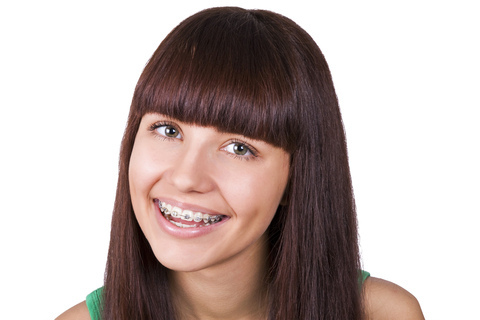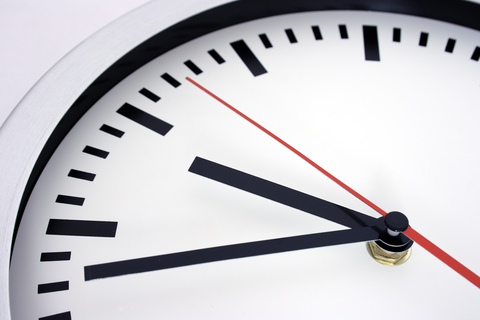October 9th, 2024

While it’s normal to feel self-conscious, there is no reason to avoid photos just because you wear braces. Many people wear braces and you do not need to be embarrassed about them. There are also ways you can enjoy your photos without hiding your smile.
Make it Fun
Dr. Frech and our staff offer rubber bands for braces in a wide range of colors. Choose your favorite color and wear it with pride. You can mix and match your colors too. For Valentine’s Day, try alternating red and pink bands. For the Fourth of July, use red, white, and blue!
Bands are also available in neon colors and glow-in-the-dark designs. Your imagination is the only thing holding you back. You might want to avoid using dark green bands, though. It makes it look as though you have broccoli stuck in your teeth. Gross!
Make them Disappear
If your braces still really bother you in photos, technology can quickly solve the problem. A photo-editing program, or even a simple paint program, can easily erase your braces. Zoom in on your teeth, pick your natural tooth color with the dropper, and paint your braces away.
If you have a significant amount of metal in your braces, try to avoid close-ups with flash. The flash can reflect off the metal. The important thing to remember is how good your teeth will look and feel once your orthodontic work is complete. Dr. Frech and our staff can also show you options for braces that are not as visible as the traditional style.
October 9th, 2024

When beginning orthodontic treatment, most patients ask Dr. Frech and our team a lot of questions about what to expect, while others choose to just "go with the flow" and leave it to us to build for them a beautiful smile. And for our team at Wichita Falls Orthodontics, that's understandable.
But for those who do ask questions, two of the ones we frequently hear are "Will my braces hurt?" and "How long will these be on?"
We explain to our patients that despite what they've heard, braces do not hurt when they're initially put on. Yes, you will experience soreness after your braces are placed and when your teeth start to move. Too often, our patients hear horror stories about how much it hurts to get the braces on, so they tend to over-worry. The truth is, after their braces are on, almost all patients say "that's it?" because it's actually easy and painless!
At Wichita Falls Orthodontics, we answer most of your other questions during your initial exam. When a patient visits our office for the first time, we give him or her a time estimate of how long it will take to achieve their ideal smile. All other questions are answered at the bonding appointment when the braces are placed. We cover all the topics, everything from eating to brushing with braces, but we also know that after your initial appointment, it's natural for you to have questions about your or your child's treatment. And we are always here for you; we are thorough and always try to answer any questions or concerns you may have. As a patient, that's one thing you never have to worry about. You will always know what's going on throughout your orthodontic experience.
October 2nd, 2024

If this is your child’s first holiday season with braces, here are some tips on how to help children get the most enjoyment from these celebrations without compromising their braces or leaving them feeling left out of the festivities.
Halloween
When you think dental health, “Halloween” is not usually the first thing that comes to mind. Halloween can be tricky, but with some planning and intervention, you can make sure your child doesn’t miss out on the treats that make the holiday a favorite.
Braces present other challenges besides dealing with the scary amount of sugar in every trick-or-treat bag. Certain treats can be a challenge to clean from braces, and can even cause broken brackets and wires. How to avoid these frightful results?
- Go through your child’s treat bag when you get home after neighborhood trick-or-treating. Anything which can damage braces, such as regular gum, candy with nuts or caramel, or hard or chewy candies should be discarded. Perhaps you and your child can choose a selection of soft candy such as plain chocolate and peanut butter cups to trade for those tricky treats. Your child’s favorite soft fruits, cupcakes, and cookies could also be safe substitutes.
- Party time? Candy apples, bowls of candy corn, and popcorn balls are favorite treats at Halloween parties, but very bad for braces. Help your child recognize what should be avoided before attending, and suggest safe options like soft cupcakes.
- Finally, even safe treats will leave more sugar than normal in your child’s mouth and therefore more potential for plaque build-up. Brush and floss more often, if needed, and rinse regularly with water.
Talk candy guidelines over in advance with your child. If you’d like, Dr. Frech can recommend safe alternatives. With your help, Halloween won’t be a fearsome experience for you or your trick-or-treater.
Thanksgiving
Now, this is a holiday to be thankful for! Almost all of your traditional favorites are perfect for family members with braces.
- Appetizers: Offer soft food options such as silky cheeses and deviled eggs instead of crunchy vegetables, chips, and nuts.
- Dinner: Turkey is a required dish on many tables, and no need to miss out! Just make sure pieces are bite-size and off the bone. Creamy mashed potatoes and gravy and jellied cranberry sauce are also braces-friendly traditions. Any cooked vegetable should be fine, but do cut the corn from the cob first. Dressing is a great side dish if your child avoids any crunchy tops and edges, as are soft, nut-free rolls and muffins.
- Dessert: Pumpkin pie, cheesecake, and apple pie with ice cream are all safe (and delicious) choices. Leave the pecan pie, caramel sauce, and anything nutty or chewy off your child’s menu. And remember to brush and floss carefully after the feast!
If you are concerned that following the usual food guidelines might be a little more difficult during this time of year, talk to us. Dr. Frech and our team are happy to suggest ways to make your child’s first holidays with braces memorable for all the right reasons. The last thing you’ll want is an emergency visit to our Wichita Falls, TX office!
October 2nd, 2024

Now that October is upon us, Dr. Frech and our team at Wichita Falls Orthodontics wanted to send you a friendly reminder to schedule your orthodontic appointment prior to the end of the year to take full advantage of any flex spend, health savings, or insurance benefits that you may have.
The end of the year is always a busy time so make your appointment now so you don’t lose your available benefits! Give us a call today!





